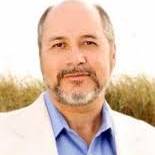Responding to the COVID-19 Pandemic: Predoctoral Education and Training in Clinical Psychopharmacology (1 CE)
Presenter: Gerardo Rodriguez-Menendez, Ph.D., ABPP, MSCP
2:00 PM - 3:00 PMWed
Registration Required
Your registration must include one of the required registration options to attend this session. [ Details ]
Speakers
 Rodriguez-Menendez, Gerardo Ph.D., ABPP, MSCP
Rodriguez-Menendez, Gerardo Ph.D., ABPP, MSCP
Chair, MS Clinical Psychopharmacology
The Chicago School of Professional Psychology
Documents
The COVID-19 pandemic has brought unprecedented challenges with secondary impacts of the pandemic resulting in high levels of unemployment, financial distress, and social isolation. Bell et al. (in press), recommend a comprehensive revision to Health Service Psychology (HSP) curricula to address the pervasive ramifications of COVID-19 and other such public health threats. The U.S. Department of Health and Human Services (2018) estimated that approximately 114 million Americans reside in mental health shortage areas. Nationally, about 60% of all counties, including 80% of all rural counties, do not have a psychiatrist and 40% of persons needing mental health care services go untreated (The New Economy Healthcare Report, 2017).
Clinical psychopharmacology is a recognized HSP specialty area that allows for psychopharmacology education at the predoctoral level. An overview of the Master of Science in Clinical Psychopharmacology (MSCP) program at The Chicago School of Professional Psychology will be presented. We propose two routes for MSCP training at the doctoral level: (a) the creation of concentrations in clinical psychopharmacology in doctoral programs (providing up to half of MSCP coursework online or hybrid); and (b) the creation of a joint PsyD/MSCP degree program using an in-presence/online format whereby students may graduate with both degrees in a standard 5-year curricular timeframe meeting APA accreditation and MSCP designation standards. Given its emphasis on neuroscience and interdisciplinary health care, such a curricular model may help to address the impacts of the COVID-19 pandemic, while serving to enhance the sustainability of HSP education and training in the 21st Century.
* Please see a flier below regarding a webinar on Jan. 22 presented by Drs. Rodriguez-Menendez and Bialeck, part of the Psychopharmacology webinar series (gratis) sponsored by CSPP: A COVID-19 update: What psychologists should know.
Learning Objectives
Participants will be able to:
1. Describe the basic requirements for prescriptive authority licensure.
2. Apply advocate strategies for prescriptive authority legislation throughout the country.
3. Explain the benefits, advantages, and risks of predoctoral training in clinical psychopharmacology.
4. Describe ways in which clinical psychopharmacology training may be integrated with education in predoctoral health service psychology programs.